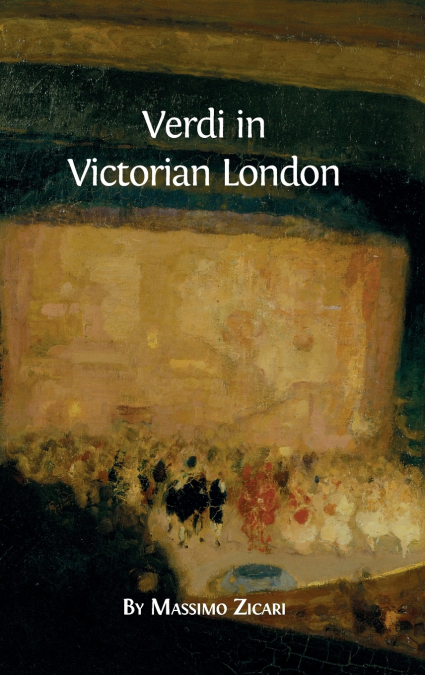
Massimo Zicari
Now a byword for beauty, Verdi’s operas were far from universally acclaimed when they reached London in the second half of the nineteenth century. Why did some critics react so harshly? Who were they and what biases and prejudices animated them? When did their antagonistic attitude change? And why did opera managers continue to produce Verdi’s operas, in spite of their alleged worthlessness? Massimo Zicari’s Verdi in Victorian London reconstructs the reception of Verdi’s operas in London from 1844, when a first critical account was published in the pages of The Athenaeum, to 1901, when Verdi’s death received extensive tribute in The Musical Times. In the 1840s, certain London journalists were positively hostile towards the most talked-about representative of Italian opera, only to change their tune in the years to come. The supercilious critic of The Athenaeum, Henry Fothergill Chorley, declared that Verdi’s melodies were worn, hackneyed and meaningless, his harmonies and progressions crude, his orchestration noisy. The scribes of The Times, The Musical World, The Illustrated London News, and The Musical Times all contributed to the critical hubbub. Yet by the 1850s, Victorian critics, however grudging, could neither deny nor ignore the popularity of Verdi’s operas. Over the final three decades of the nineteenth century, moreover, London’s musical milieu underwent changes of great magnitude, shifting the manner in which Verdi was conceptualized and making room for the powerful influence of Wagner. Nostalgic commentators began to lament the sad state of the Land of Song, referring to the now departed 'palmy days of Italian opera.' Zicari charts this entire cultural constellation. Verdi in Victorian London is required reading for both academics and opera aficionados. Music specialists will value a historical reconstruction that stems from a large body of first-hand source material, while Verdi lovers and Italian opera addicts will enjoy vivid analysis free from technical jargon. For students, scholars and plain readers alike, this book is an illuminating addition to the study of music reception.